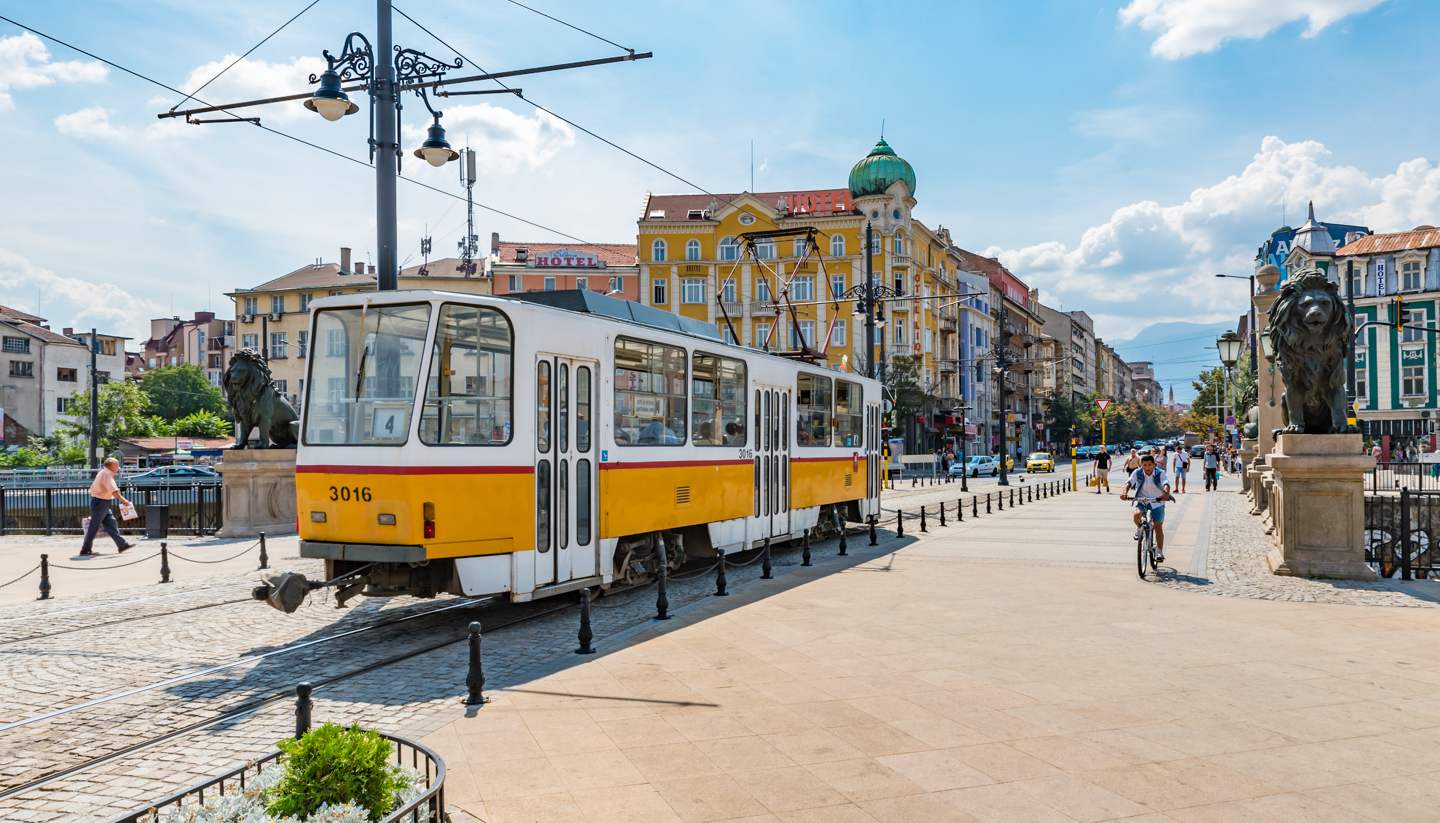Money and duty free for Bulgaria
Currency and Money
Currency information
Euro (EUR; symbol €) = 100 cents. Notes are in denominations of €500, 200, 100, 50, 20, 10, and 5. Coins are in denominations of €2 and 1, and 50, 20, 10, 5, 2, and 1 cents.
Credit cards
Major credit and debit cards (Visa, Mastercard) are widely accepted in cities, restaurants, hotels and larger shops. In rural areas, cash may be more common.
ATM
ATMs are widespread across cities, towns and villages. Most accept international cards and dispense leva. Using an ATM is often the easiest way to access cash.
Banking hours
Mon-Fri 09:00 to 17:00.
Currency restrictions
When entering or leaving the EU, amounts of €10,000 or more (or equivalent) in cash must be declared.
Bulgaria duty free
Overview
Bulgaria's duty-free allowance for travellers arriving from within the EU:
If you are over 17 years old, you can transport goods freely between EU countries, provided they are for personal use and not for resale. Taxes must already have been paid on these goods in the country of purchase. If you exceed the following guideline amounts, customs officials may question you to ensure the goods are for personal use:
• 800 cigarettes or 400 cigarillos or 200 cigars or 1kg of tobacco.
• 90L of still wine (of which a maximum of 60L can be sparkling wine).
• 110L of beer.
• 10L of spirits over 22% alcohol by volume or 20L of fortified wine or other beverages up to 22%.
• Travellers under 17 years old may not bring in tobacco or alcohol products, and rules may vary slightly between EU countries.
Bulgaria's duty-free allowance for travellers arriving from outside the EU:
If you are arriving from a non-EU country, the following goods may be imported into Bulgaria by travellers over 17 years of age without incurring customs duty:
• 200 cigarettes or 100 cigarillos or 50 cigars or 250g of tobacco. You may combine these tobacco products provided the total limit is not exceeded.
• 1L of spirits over 22% alcohol by volume or 2L of alcoholic beverages less than 22% alcohol by volume.
• 4L of wine.
• 16L of beer.
• Other goods up to the value of €430 for air/ sea passengers (reduced to €150 for travellers under 15).
Banned Imports
Prohibited items include narcotic and psychotropic substances, endangered species and their products (ivory, certain leathers, protected plants), and counterfeit or pirated goods. Import of certain agricultural products (meat, dairy) from non-EU countries is restricted.
There is a ban on the import of the following goods from the Russian Federation into the EU: diamonds, gold, jewellery, cigarettes, cosmetics, seafood (e.g. caviar), spirits (e.g. vodka), shoes, clothing and smartwatches.
This list is not exhaustive. Travellers should check with Bulgarian Customs or embassy for up-to-date rules.
Banned Exports
Prohibited exports include endangered species and their derivatives, historical or cultural artefacts without export permission, narcotics, and psychotropic substances. Travellers should verify export control rules with Bulgarian authorities or the nearest embassy.


